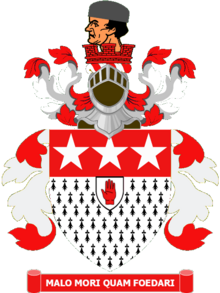Sir Thomas Esmonde, 11th Baronet
Sir Thomas Esmonde | |
|---|---|
 Esmonde in 1907 | |
| Senator | |
| In office 11 December 1922 – 12 December 1934 | |
| Member of Parliament for North Wexford | |
| In office October 1900 – December 1918 | |
| Preceded by | Thomas Joseph Healy |
| Succeeded by | Roger Sweetman |
| Member of Parliament for West Kerry | |
| In office July 1892 – October 1900 | |
| Preceded by | Edward Harrington |
| Succeeded by | Thomas O'Donnell |
| Member of Parliament for South Dublin | |
| In office December 1885 – July 1892 | |
| Preceded by | New constituency |
| Succeeded by | Horace Plunkett |
| Personal details | |
| Born | 21 September 1862 County Wexford, Ireland |
| Died | 15 September 1935 (aged 72) County Wexford, Ireland |
| Political party |
|
| Spouses |
|
| Parent |
|
| Residence(s) | Ballynastragh House, Gorey, County Wexford |

Sir Thomas Henry Grattan Esmonde, 11th Baronet, KHS (21 September 1862 – 15 September 1935) was an Irish Home Rule nationalist politician and author.[2]
Politics
[edit]Esmonde represented the Irish Parliamentary Party as an MP for the constituencies of South Dublin from 1885 to 1892; West Kerry from 1892 to 1900; and North Wexford from 1900 to 1918. He also sat as an independent Senator in the Oireachtas from 1922 to 1934.[3][4] He was High Sheriff of County Waterford in 1887.[2]
Personal life
[edit]He was the son of Sir John Esmonde, 10th Baronet and his wife Louisa, daughter of the younger Henry Grattan (making him a great-grandson of the pre-Union Irish statesman Henry Grattan).[5]
In July 1891, he married Alice Donovan of Tralee.[6] Alice and Esmonde had five children:
- Alngelda Barbara Mary Grattan Esmonde
- Eithne Moira Grattan Esmonde; married her second cousin Sir Anthony Esmonde, 15th Baronet
- Patricia Alison Louisa Grattan Esmonde
- Sir Osmond Esmonde, 12th Baronet (1896–1936)
- John Henry Grattan Esmonde (1899–1916); killed in the Battle of Jutland
Alice died in December 1922, and in September 1924 Esmonde married Anna Frances Levins.[6]
Esmonde's home, Ballynastragh House, located near Gorey, County Wexford, and dating from the 17th century, was burned down on 9 March 1923 by members of the anti-Treaty Irish Republican Army. The house was rebuilt on a much smaller scale in 1937.[7]
Esmonde was a frequent traveller and author of articles on Irish folklore and antiquities, as well as a memoir, Hunting Memories of Many Lands (1920).[2] He died in Dublin, six days before his 73rd birthday.[2]
| Sir Thomas Esmonde, 11th Baronet | |
|---|---|
 | |
| Crest | Out of a mural crown Gules a head in profile wearing a helmet all Proper. |
| Shield | Ermine on a chief Gules three mullets Argent. |
| Motto | Malo Mori Quam Foedari (Had Rather Die Than Be Dishonoured)[8] |
In 1902 he founded the Enniscorthy Echo in co-operation with William Sears.[9]
Honours
[edit]Knight of the Order of the Holy Sepulchre.[10]
See also
[edit]References
[edit]- ^ by George Petrie from Brewer, Vol. 2: where it is stated that it was published by Sherwood 1 May 1826 and engraved by James Sargant Storer and Henry Sargant Storer
- ^ a b c d "Sir T. H. Gratton Esmonde: Nationalist Whip and Sinn Fein Senator". The Times. 16 September 1935. p. 14.
- ^ "President's nominees for Seanad". Houses of the Oireachtas. 6 December 1922. Retrieved 26 December 2023.
- ^ "Thomas Esmonde". Oireachtas Members Database. Retrieved 27 December 2018.
- ^ Robert Henry Mair, ed. (1886). Debrett's House of Commons and The Judicial Bench 1886. London: Dean and Son. p. 48. Retrieved 24 May 2014.
- ^ a b Maume, Patrick. "Esmonde, Sir Thomas Henry Grattan". Dictionary of Irish Biography. Retrieved 4 January 2022.
- ^ "The destruction of Ballynastragh House, Gorey, March 1923". The Archaeology of Conflict: Wexford in the Civil War, 1922–1923. 17 February 2018. Retrieved 26 December 2018.
- ^ Debrett's Peerage. 1878.
- ^ "Sears, William". Dictionary of Irish Biography. October 2009. Retrieved 10 December 2021.
- ^ Notable Irish Members (Historic): Sir Thomas Grattan Esmonde
External links
[edit]- Esmonde Family Tree
- Hansard 1803–2005: contributions in Parliament by Sir Thomas Esmonde
- Portraits of Sir Thomas Esmonde at the National Portrait Gallery, London
- . . Dublin: Alexander Thom and Son Ltd. 1923. p. – via Wikisource.
- 1862 births
- 1935 deaths
- Baronets in the Baronetage of Ireland
- Irish Parliamentary Party MPs
- Members of the Parliament of the United Kingdom for County Dublin constituencies (1801–1922)
- Members of the Parliament of the United Kingdom for County Kerry constituencies (1801–1922)
- Members of the Parliament of the United Kingdom for County Wexford constituencies (1801–1922)
- UK MPs 1885–1886
- UK MPs 1886–1892
- UK MPs 1892–1895
- UK MPs 1895–1900
- UK MPs 1900–1906
- UK MPs 1906–1910
- UK MPs 1910
- UK MPs 1910–1918
- Members of the 1922 Seanad
- Members of the 1925 Seanad
- Members of the 1928 Seanad
- Members of the 1931 Seanad
- Politicians from County Wexford
- Esmonde family
- High sheriffs of County Waterford
- Members of the Order of the Holy Sepulchre
- Independent members of Seanad Éireann
- People from Gorey
- Anti-Parnellite MPs
